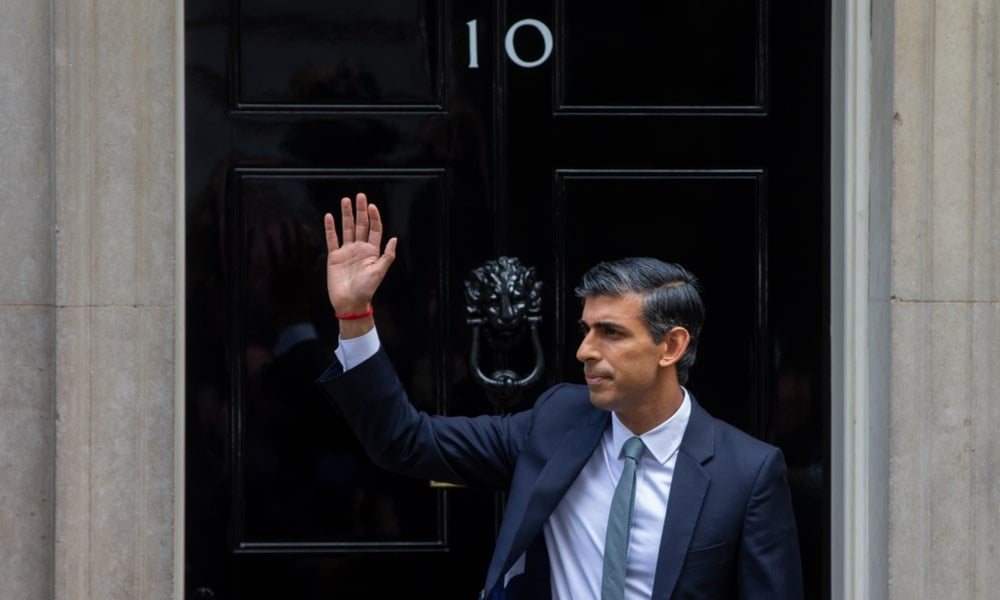The democracy seesaw: Why experts fall as populists rise
New research explains how policy delegation to technocrats may fuel political cycles that undermine democratic stability and legitimacy
In modern democracies, a persistent tension exists between rule by elected majorities and governance by unelected experts. The resulting tug-of-war can lead to some groups believing their interests are best served by delegating power to technocrats and others by wresting power from technocrats. In the extreme, this tug-of-war can destabilise democracies, as potently illustrated by recent developments in the US.
The last two decades of the 20th century witnessed a significant increase in technocratic governance across advanced democracies. Independent central banks, fiscal rules committees, and international courts gained authority over decisions previously controlled by elected representatives.
New research argues that this technocratisation of liberal democracies coincides with the breakthrough and consolidation of populist political forces in almost all advanced industrialised democracies. Conducted by Professor Gabriele Gratton from the School of Economics at UNSW Business School together with Jacob Edenhofer, a PhD student in politics at the University of Oxford’s Nuffield College, their research examined the conditions that prompt democratic majorities to delegate power to unelected technocrats and the circumstances that lead to a backlash against this delegation.
For their working paper, The Rise and Fall of Technocratic Democracies: Unstable Majorities and Delegation to Technocrats, the researchers developed a formal model to analyse how societal changes affect democratic institutional arrangements, supplementing this with case studies on central bank independence, fiscal rules, and climate policy.

“Contemporary public debate, both in politics and academia, is full of claims that Western democracies have lost their compass and have delegated too much power to experts, economists, judges or psychologists,” said Prof. Gratton, who heads up the UNSW Resilient Democracy Lab, which promotes and supports theoretical and empirical research on the robustness of democratic institutions.
“At the same time, others maintain that this delegation to experts is truly delivering a better democracy: that experts know better than majority voters what individual rights are truly worth protecting and how to navigate economic turmoil, pandemics, or housing affordability crises. This seems to be a tension at the core of contemporary democratic debate, and we wanted to develop a framework to try to understand when and why these tensions may be most dangerous for democratic stability.”
When democratic majorities surrender power to technocrats
Democratic majorities typically delegate power to technocrats when they fear losing their majority status while expecting technocrats to maintain their preferred policies. This creates what the researchers term “intertemporal insurance” – protection against future political losses.
The researchers identified three potential regime types that emerge from this dynamic. The first is a stable technocratic democracy, where all majorities support delegation to experts. This occurs when “majorities are volatile and the policies chosen by technocrats have sufficiently differential effects over time so that in one period the majority is advantaged and in another period it is disadvantaged.”
Read more: Five economic policy priorities for Australia’s next government
The second is a stable majoritarian democracy, where all majorities prefer direct control of policy. This happens when “majorities are more durable” so that all majorities “prefer majority rule to the reassurance that technocrats will protect [them] from a change in majority status”.
The third type features cycles between technocratic and majoritarian governance. Prof. Gratton and Mr Edenhofer write that “when the effects of [technocratic] policies tend to favour the same group or interests in different periods, majorities favoured by technocracy will delegate policymaking to technocrats as intertemporal insurance, whereas disadvantaged majorities will want to return to a majoritarian democracy.”
Real-world examples of technocratic-majoritarian tensions
Central banks and the Trump administration vs the Federal Reserve: A prime example of the majoritarian pushback against technocratic institutions involves US President Donald Trump, who openly toyed with the idea of curtailing the Fed’s independence during the 2024 presidential campaign and the early days of his second presidency. This reflects a broader pattern where populist leaders contest central bank independence when it conflicts with their policy preferences.
Research by Funke, Schularick, and Trebesch showed that “on average, inflation increases by just under ten percentage points in the first five years after the election of populists,” demonstrating the real economic impact when technocratic monetary policy gets overridden by populist leaders.

A current example of this can be found in Elon Musk and his prominent role in the US Department of Government Efficiency (DOGE), and President Trump’s tug-of-war with the judiciary about immigration and “woke” policies. “In general, the Trump administration is clearly at war with the US bureaucracy and with the broader constellation of ‘experts’, including academia,” said Prof. Gratton.
Germany’s “debt brake” fiscal rules: Germany’s experience with its constitutional “debt brake” further illustrates these dynamics. Introduced in 2009 with support from both the Social Democrats (SPD) and Christian Democrats (CDU/CSU), this rule limits federal borrowing to 0.35% of GDP. The rule was uncontested until recently when the SPD began advocating for its reform.
The turning point came in late 2023 when “the German Constitutional Court adopted what many regarded as a strict, fiscally constraining interpretation of the debt brake, which left the traffic-light (SPD, Greens, and FDP) coalition’s budget in tatters and contributed to the premature end of the coalition.” This ruling signalled that the technocratic institution would consistently favour fiscal hawks, prompting the centre-left parties to push for majoritarian reforms.
UK climate policies and technocratic governance: The UK provides a telling case study in climate policy governance. The UK Climate Change Committee (UK CCC), established under the Climate Change Act of 2008, gained significant technocratic authority to propose carbon budgets – emission reduction targets that governments must set twelve years in advance.

Even during austerity measures in 2011, the Cameron-led coalition government considered but ultimately refrained from ignoring the UK CCC’s advice on the fourth carbon budget, showing the durability of this technocratic delegation. However, more recent political figures like former Prime Minister Rishi Sunak, who referred to climate policy as “‘green crap,’” represent the growing majoritarian pushback against climate technocracy as its costs become more apparent to specific voter groups.
Why technocratic democracy faces cyclical challenges
The research by Prof. Gratton and Mr Edenhofer reveals that technocratic democracies do not typically fail because they deliver poor policies. Rather, they fall victim to their own success. Because technocrats maximise social welfare rather than majority preference, their decisions may frustrate new majorities who then seek to restore direct democratic control.
“Importantly, technocratic democracies do not fall because they fail to provide policies that maximise welfare. In fact, they are ‘victims of their own success’ – precisely because they successfully maximise social welfare, their policies can be at odds with the preferences of majorities that will attempt to replace the technocratic democracy with a majoritarian one,” Prof. Gratton and Mr Edenhofer explain.
Implications for democratic stability
These cycles of institutional reform can threaten democratic stability. Each transition between technocratic and majoritarian governance creates opportunities for democratic backsliding, as frustrated majorities may support leaders promising to dismantle not only technocratic institutions but democratic checks and balances.
Subscribe to BusinessThink for the latest research, analysis and insights from UNSW Business School
Paradoxically, the researchers found that efforts to strengthen democratic institutions against backsliding can sometimes increase long-term risks: “Our model demonstrates that institutions designed to safeguard democratic institutions against backsliding in any given period may, in the long run, heighten the risk of autocratisation by pushing a stable technocratic democracy into recurring technocratic-majoritarian cycles that each carry a small risk of backsliding,” the researchers said.
“We believe these are important insights to keep in mind in designing institutions that may foster a more inclusive and stable democracy for the 21st Century. Institutions can foster a virtuous feedback loop, whereby democracy promotes sustainable and inclusive growth, and inclusive growth reinforces a sustainable and resilient democracy,” said Prof. Gratton.
“They tell us that a stable democracy needs to balance our desire to improve the lives of minorities and guarantee a sustainable future with the legitimate grievances of those voters who feel excluded from the ’democratic dream’ of inclusive growth. It also tells us that beefing up checks and balances is not really the solution. As we find repeatedly in our studies, stronger checks and balances can actually backfire, and lead to autocratisation.”
Key takeaways for political leaders and policymakers
Political leaders should recognise that technocratic delegation works best when technocratic policies distribute costs and benefits across different groups over time. When the same groups consistently benefit or lose from technocratic decisions, institutional instability becomes more likely.
The European Central Bank’s experience offers lessons on the importance of communication and flexibility. As monetary policy decisions following the 2008 financial crisis disproportionately benefited asset owners, the technocratic institution faced increasing criticism. Research by Anderson, Johannesen, Jørgensen, and Peydró demonstrated that monetary policy had “consistently regressive effects: it has benefitted the rich more than the poor.”
Read more: Will purges make America great again?
Policymakers considering delegation to independent authorities should ensure these bodies maintain flexibility to respond to shifting societal preferences. The proliferation of climate advisory bodies across OECD countries since 2000 shows how technocratic institutions can gain legitimacy when they balance expertise with responsiveness to changing public priorities.
For democracies experiencing institutional conflict between technocratic and majoritarian elements, finding middle-ground solutions that preserve technocratic expertise while ensuring democratic accountability becomes crucial. This might include regular reviews of technocratic mandates or mechanisms for democratic oversight that fall short of total political control.
By understanding the natural cycles of democratic governance, leaders can design institutions that balance technocratic expertise with democratic responsiveness, creating more resilient political systems in the process.
The UNSW Resilient Democracy Lab promotes and supports theoretical and empirical research on the robustness of democratic institutions. Comprising academic experts from around the world, the lab studies how economic, political, and cultural factors affect the robustness of democratic institutions and how to design institutions that foster democratic resilience against the rise of extremisms, illiberalism and majoritarianism. For more information about the research in this article, read Behind Populists’ Anti-Technocratic Fervour and Its Consequences for Liberal Democracy.
